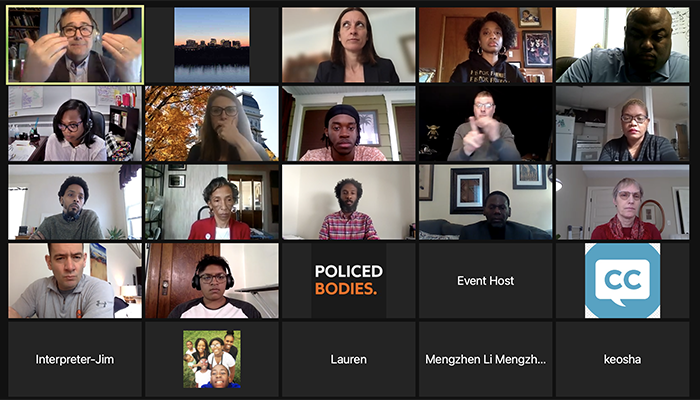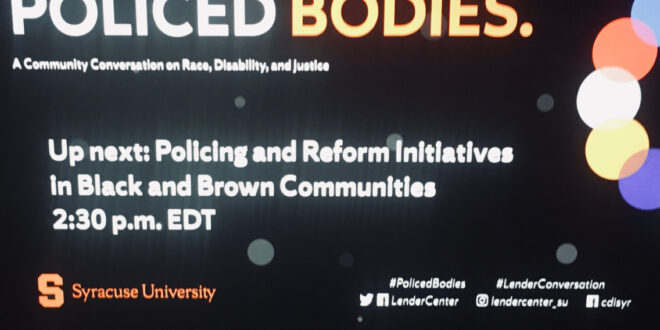By Katherine J. Scoville
As the Policed Bodies conversation came to a close, more important and essential points of view were brought to the table. The final session was led by Yusuf S. Abdul-Qadir, a member of the Syracuse Police Accountability and Reform Coalition, who was accompanied by other panelists.
The conversation first centered on what it meant to be radical. “Radical means a lot of things to many people,” Abdul-Qadir said. “We need to have a radical shift.”
In this conversation, radicalism was brought up when discussing the large changes that need to be made within the police as an entity.
“There have been too many police killings and assaults on black and brown communities,” Abdul-Qadir said.
“The police as an institution is designed to create these outcomes,” Abdul-Qadir said.
“It’s not just about the individual bad officers, it’s about the entirety of the police institution that is corrupt,” Jimmy Oliver, director of community engagement at the Syracuse Police Department, said.
“Policing people gives the police institution a lot of power,” Oliver said.

The panel also discussed the double-meaning for “criminal justice.”
“Criminal justice is a code for just us,” said Larry Williams, CEO of Syracuse Community Connections.
He described the police as a militaristic organization, operating from its own manifesto, not for the benefit of the entire community.
“Police exist so that Black and brown people can be contained,” Williams said.
“There are these mishaps that young, white men and women experience, but they don’t go to jail for it. But Black people do,” said Talina Jones, a chair member of the New York State Early Intervention Coordinating Council.
She used the example of smoking weed in public. If a young white person were to engage in this act, they may only get a “slap on the wrist,” while young Black people would receive a harsher punishment and possibly even jail time for this offense, she said.
“Ill intention is so deeply embedded that you have to do a lot of work to unearth it,” Jones said.
The discussion even went further to discuss the state of Syracuse schools.
“There is a very small number of Black and brown teachers in the Syracuse City School District,” said Jessia Elliott, director of programs at Dunbar Association. “The amount of advocacy I had to do for students was ridiculous. The way teachers are trained doesn’t provide the care and love that many Black and brown children need.”
All of the panelists agreed that these issues are more than personal. These concerns are also political issues that deserve to be addressed and corrected not only for the sake of themselves but for future generations who may be at risk of oppression.
 The Stand
The Stand


